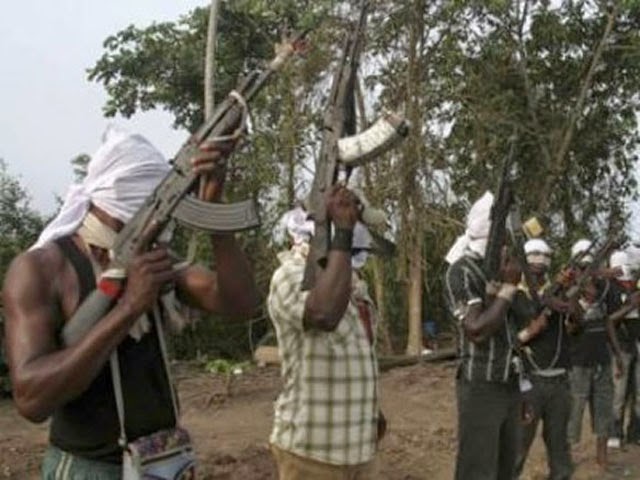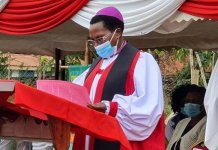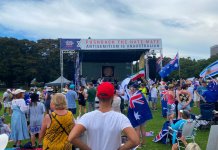Attacks against Christian communities in Nigeria have continued into the new year, following a coordinated massacre of civilians over Christmas.
Partners of Release International, which serves the persecuted Church around the world, say 238 people were killed in attacks by Fulani militants between the 23rd of December and December 30. More have been killed since.
The governor of Plateau State has declared a week of prayer and mourning and there have been international calls to designate Nigeria as a country of particular concern.
Christmas massacre
The Christmas 2023 massacres were among the worst ever against the Christian community in Nigeria. Those attacks, which drove 20,000 from their homes, have continued in Borno and Kaduna states.
Continuing attacks, by Boko Haram terrorists on January 4, claimed the lives of a pastor and at least six members of his church. Pastor Ayuba was the leader of a COCIN (Church of Christ in Nations) congregation.
Other assaults by Boko Haram and Fulani terrorists in Borno and Kaduna have taken a further 50 lives, according to Release International partners.
In a statement, the Catholic Bishop of Sokoto Matthew Hassan Kukah said the killers had ‘snatched the light of the joy of Christmas from thousands of people on Plateau.’ Funerals and coffins were now part of their landscape, he added.
The Stefanos Foundation say the attacks are part of a concerted plan to provoke religious conflict across several states. They are alerting villagers by text of intelligence of pending attacks and providing trauma counselling for victims.
Deadly implication
On January 4, the United States Commission on International Religious Freedom expressed its ‘extreme disappointment that the US Department of State yet again failed to designate Nigeria as a country of particular concern.’
Calling for a congressional hearing, USCIRF stated: ‘Days before Christmas, hundreds of Christians were killed in Nigeria, along with their pastor. This is just the latest example of deadly violence against religious communities in Nigeria.’
USCIRF described the violence as having a ‘deadly implication’ for religious communities in Nigeria and said it imposed a threat to religious freedom.
Pastor’s family killed
The latest spate of attacks began on December 23 and escalated on Christmas Eve. They were made all the more deadly because many workers had returned home to their villages to prepare for the Christmas celebrations.
Release International (RI) partners interviewed an eyewitness, the Rev Gideon Dawel, a District Overseer of Christ’s Apostolic Church. Rev Dawel’s wife and five daughters were killed in the attack in Kambarpelli.
He said he heard the attackers shouting ‘Allahu Akbar’ (Allah is greater). They were led by militants with guns, followed by fighters with machetes and others who set fire to houses. The attack continued until daybreak.
When Rev Dawel was able to return to his house, it had been burnt down and his grain store was still alight. As he sat outside his burning home, he was expecting his wife and children to emerge from wherever they had been hiding. But unknown to him, his wife and five daughters were dead in the ashes of their home.
When the remains of his family were found, Rev Dawel collapsed and had to be taken to hospital.
Attacked by neighbours
Another pastor told RI partners that he had spoken to a woman who had been grazed by a bullet but had played dead.
The woman told the pastor she recognised the gunman as her Fulani Muslim neighbour who used to employ her as a cook. The gunman examined her as she lay motionless, to see if she was dead. Then he went after her husband and hacked him to death with a machete.
Other villagers said they recognised the attackers as Fulani who had lived nearby.
Two key factors have been highlighted behind the growing number of attacks: a landgrab for resources and the continuation of historical religious violence.
Desertification is depriving Fulani cattle herders of access to grazing land, and they are increasingly resorting to attacking farmers to seize their land.
The Fulani are Muslim while the farmers from other tribes are mainly Christian.
There is a long history of attacks by Islamists to cleanse the north of its Christian minority, dating back to the Fulani jihads of the 18th and 19th centuries.
In the 21st century, the charge to Islamise Nigeria has been led by terrorist groups Boko Haram and Islamic State West Africa Province. And growing numbers of radicalised Fulani are serving that same agenda.
Security failure
These latest attacks have cleansed the population of more than 40 villages. In June 2018, a similar attack took place in the same area, killing 233 people and displacing thousands.
Now as then, RI partners say security services were thinly spread and ineffective. And they say that locally organised protection teams who had banded together to try to repel the attack were outgunned and overwhelmed.
They say similar attacks have been taking place now for some six years, many attributed to radicalised Muslim Fulani herders.
‘Jihad’
‘Nigerian Christians have been killed continuously for decades around Riyom and Barkin Ladi,’ say RI partners. ‘All security efforts have failed. This is terrorism. This is religious cleansing by armed Muslim Fulani herdsmen who believe in religious war. This is an Islamic jihad. And intelligence shows that the assailants are bent on continuing their havoc.’
Paul Robinson is the CEO of UK-based Release International. He says: ‘The world must wake up to the religious and ethnic cleansing that is unfolding in Nigeria before their eyes. How many people must be slaughtered, before the international community puts sufficient pressure on Nigeria to protect its Christian minority in the north?
‘Nigeria has long been a country of particular concern to Release International. We watch with horror as Christian villagers are slaughtered and driven from their lands, which are then occupied by Islamist extremists. And yet Nigeria – and the world – continue to let this happen.’
According to the Nigerian NGO Intersociety, 52,000 Nigerian Christians have been killed by jihadists since 2009, and 18,000 churches destroyed.
Release International is active in some 30 countries. It works through partners to provide prayerful, pastoral, and practical support to the families of Christian martyrs, prisoners of faith and their families. It also supports Christians suffering oppression and violence, and those forced to flee.










